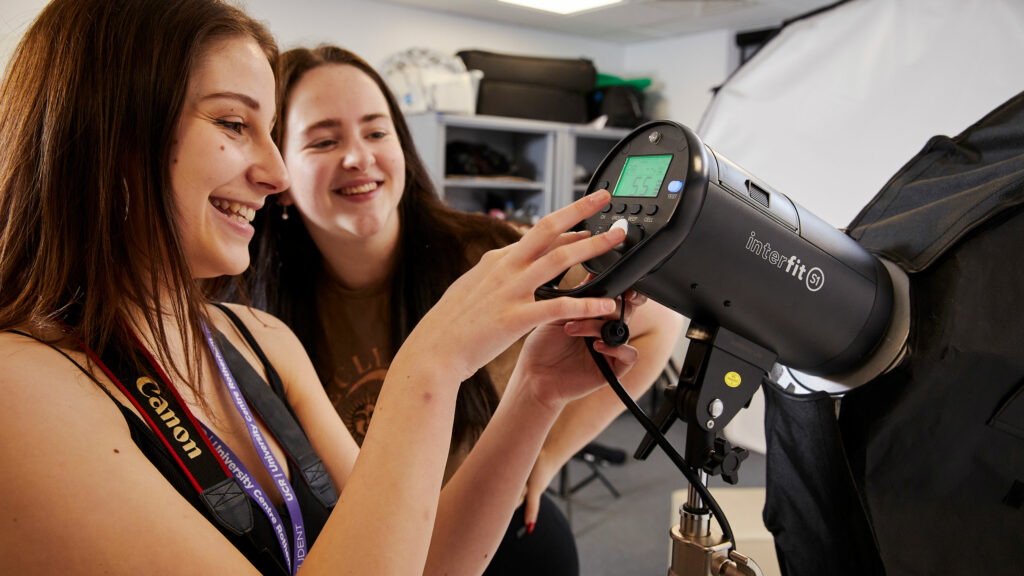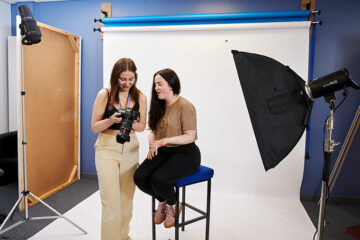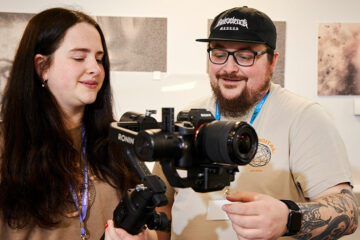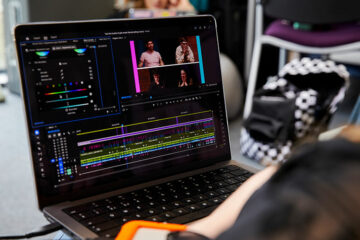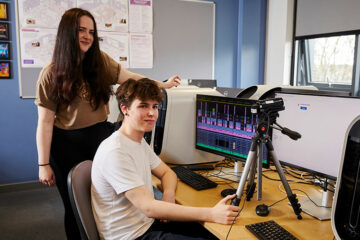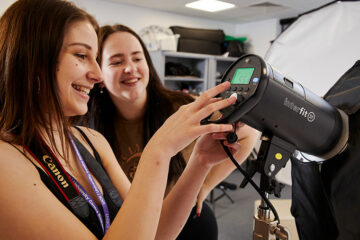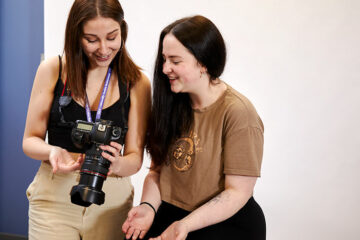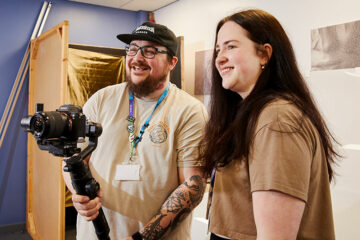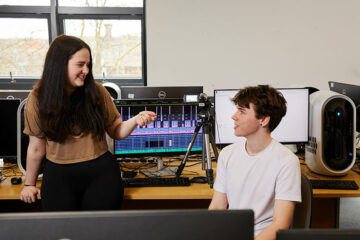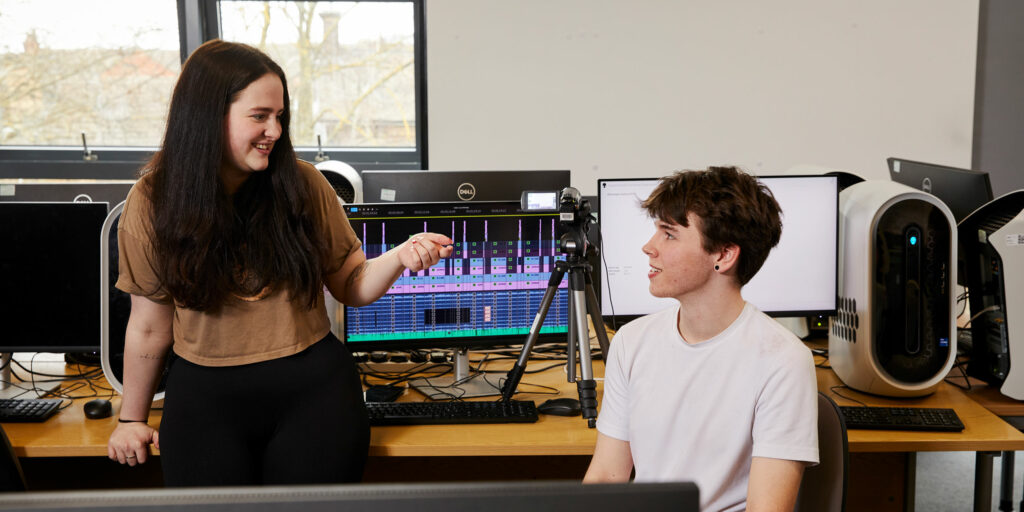Higher education in media, moving image, and photography offers students an immersive experience into the dynamic and creative world of visual storytelling.
These disciplines explore the interplay of art, technology, and culture, preparing students to communicate ideas and evoke emotions through compelling imagery and narratives.
University programmes in these fields provide a blend of theoretical knowledge and hands-on practice, equipping students with the technical skills and critical perspectives necessary for success in industries such as film, television, advertising, and journalism.
One of the defining features of higher education (HE) in these areas is the access to cutting-edge tools and resources. Students gain proficiency in using industry-standard equipment and software, such as professional cameras, editing suites, and sound recording tools.
Workshops and practical sessions allow them to master techniques in cinematography, photo editing, and motion graphics. Moreover, many programmes include collaborative projects, giving students the opportunity to work as part of a creative team, reflecting the real-world dynamics of these industries.
Take a look at the courses we offer below
More information about media, moving image and photography HE courses
The study of media, moving image, and photography at the higher education level also emphasises critical analysis and cultural awareness.
Courses explore the historical, social, and political contexts of visual media, encouraging students to think deeply about the messages conveyed through their work. This theoretical grounding helps graduates create content that is not only visually striking but also meaningful and impactful.
From exploring visual ethics to understanding audience engagement, students develop the ability to craft narratives that resonate in an increasingly image-driven world.
Future careers in media, moving image and photography with HE qualifications
Higher education qualifications in media, moving image, and photography provide the foundation for a wide range of exciting career opportunities in the creative and digital industries. As technology continues to evolve and visual content dominates communication platforms, professionals in these fields are increasingly in demand. Graduates are equipped with the technical expertise, artistic vision, and storytelling skills needed to thrive in roles that span traditional media, emerging technologies, and entrepreneurial ventures.
The film and television industry
In the film and television industry, graduates can pursue careers as directors, cinematographers, editors, or screenwriters, contributing to the creation of feature films, series, and documentaries. Specialised roles such as visual effects (VFX) artists and motion graphics designers are also in high demand, driven by the growing use of CGI and animation in entertainment. The rise of streaming platforms has expanded opportunities for independent filmmakers and content creators, enabling them to showcase their work to global audiences.
The photography industry
Photography graduates have diverse opportunities in commercial, editorial, and fine art photography. Careers in fashion, advertising, and product photography involve creating compelling images for brands and campaigns, while photojournalists capture moments that shape public understanding of events. Additionally, the growing popularity of social media and e-commerce has boosted demand for skilled photographers in digital marketing and influencer branding. Emerging fields like drone photography and virtual tours also present new and innovative avenues for professional growth.
Further roles
The rapid advancement of digital technology has given rise to careers that blend media, moving image, and photography with cutting-edge innovation. Graduates can work as AR/VR content creators, developing immersive experiences for gaming, education, and marketing. Similarly, roles in video production for digital platforms, including YouTube and social media, offer creative freedom and entrepreneurial potential. With their ability to combine technical skills, storytelling expertise, and adaptability, graduates of higher education programmes in these fields are well-prepared to shape the future of visual communication in a variety of industries.
Meet the Tutors

Kasey Windle-Heath
BA, PGCE
Programme Leader

Ryan Gleeson
BA Hons, PGCE
Lecturer






